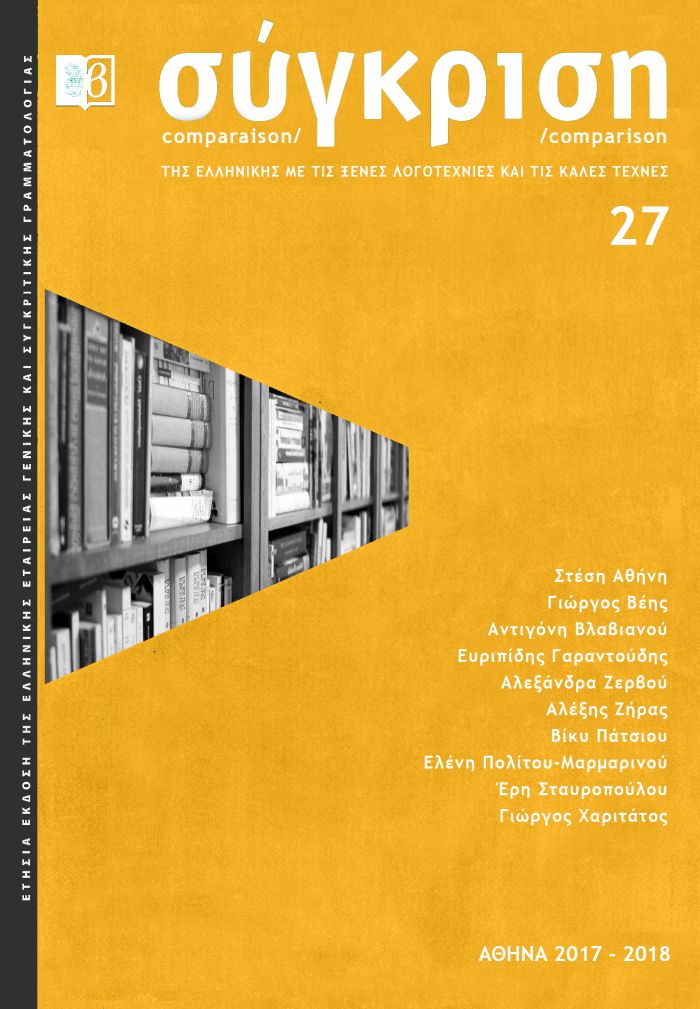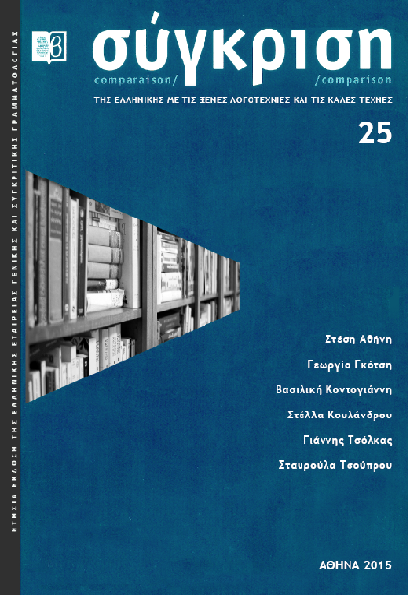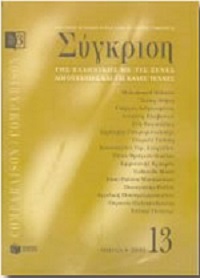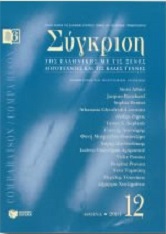N.I.Saltelis et la traduction des romans au cours de quinze premières années du jeune état grec
Abstract
Dans le cadre des théories traductologiques orientées vers la figure du traducteur, j’ai choisit d’éclairer l’identité du poète romantique mineur N.I.Saltelis en tant que traducteur des romans. Les riches péritextes de ses deux traductions, Le diable boiteux (Ermoupoli 1838) d’Alain-René Lesage et Ernest, ou Le travers du siècle (Smyrna 1841) de Gustave Drouineau, font apparaître ses attitudes et ses pratiques traductives. Dans le cas du roman de Lesage qui évoque plutôt une épreuve scolaire de traduction et qui demeure jusqu'à nos jours l'unique traduction en grec moderne de ce best-seller européen de l'époque des Lumières, Saltelis y trouve à la fois un instrument d'étaler son érudition et ses relations personnelles ainsi qu'un moyen de faire son apparition dans la sphère publique. Par ailleurs, les liens que Saltelis tisse avec l'écrivain romantique Gustave Drouineau ainsi que sa « correspondance » avec celui-ci pourraient être inscrits dans la voie qui mènera à la "traduction littéraire".
Article Details
- How to Cite
-
Αθήνη Σ. (2019). N.I.Saltelis et la traduction des romans au cours de quinze premières années du jeune état grec. Comparison, 27, 43–59. https://doi.org/10.12681/comparison.19849
- Issue
- Vol. 27 (2018)
- Section
- Articles

This work is licensed under a Creative Commons Attribution-NonCommercial-ShareAlike 4.0 International License.
Authors who publish with this journal agree to the following terms:
- Authors retain copyright and grant the journal right of first publication with the work simultaneously licensed under a Creative Commons Attribution Non-Commercial License that allows others to share the work with an acknowledgement of the work's authorship and initial publication in this journal.
- Authors are able to enter into separate, additional contractual arrangements for the non-exclusive distribution of the journal's published version of the work (e.g. post it to an institutional repository or publish it in a book), with an acknowledgement of its initial publication in this journal.
- Authors are permitted and encouraged to post their work online (preferably in institutional repositories or on their website) prior to and during the submission process, as it can lead to productive exchanges, as well as earlier and greater citation of published work (See The Effect of Open Access).








